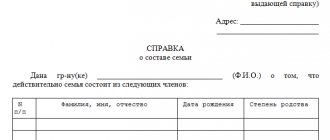A deed of gift is a bilateral agreement under which the property of the donor passes to the donee. Unlike a will, the transfer of property rights occurs during the lifetime of the owner of the object. After concluding a deed of gift, the recipient of the gift must register movable or immovable property in his name. So he becomes the full owner of the object.
According to the law, a gift agreement can be canceled or declared void at the initiative of interested parties. But to whom does the donated property pass after the death of the donee? The answer to this question will be given below.
Donation of an apartment after the death of the owner
The successor of a citizen under a will can be any individual or legal entity. When appointing an heir, you need to remember about, on the basis of which disabled and minor dependents of the testator have the right to an obligatory share in the citizen’s property, even if it is bequeathed. Notaries inform citizens in advance about these circumstances. The donation agreement allows you to transfer an apartment without taking into account the provisions specified in Art. 1149 of the Civil Code of the Russian Federation. Also, when drawing up a deed of gift for a share in a residential premises, the written consent of all participants in the common shared property is required, but this is not required for a will. The gift agreement is concluded once; after the transfer of ownership, changes cannot be made to it; it can be canceled by a court decision. Most often, the cancellation of the transaction occurs in cases where the purchaser of the apartment made an attempt on the life and health of the former owner and/or his relatives.
A citizen can change or cancel a will and make another one before the opening of the inheritance an unlimited number of times, while all these changes, in accordance with the Civil Code of the Russian Federation, must remain secret. In Art. 1126 of the Civil Code of the Russian Federation provides, the contents of which are not known to anyone except the author. It is handed over to the notary in a sealed envelope in the presence of two witnesses. In return, the notary issues the citizen a document confirming acceptance of the closed will for storage.
Call the number and our lawyer will answer all your questions for FREE
Civil Code of the Russian Federation part 2
Article 572. Donation agreement
Article 578. Cancellation of donation
Commentary on Article 578 of the Civil Code of the Russian Federation
1. Cancellation of a gift, in contrast to refusal to execute a gift agreement, also applies to cases where the gift has already been transferred to the donee. Thus, the revocation of a gift is, in essence, a return of the gift. To cancel a donation, one of the conditions specified in the commented article must be met. This:
attempt by the donee on the life of the donor or his family members;
intentional infliction of bodily harm by the donee;
the recipient's handling of a gift that has great non-property value for the donor in such a way that its existence is jeopardized;
the gift was made by an entrepreneur from funds for business activities within 6 months before bankruptcy;
the donor survived the donee.
In the first two cases, the cancellation of the donation occurs through a simple expression of the will of the donor. He does not need to go to court. Moreover, if the donor was deprived of life by the donee, the heirs of the deceased may demand the return of the gift.
In the second and third cases, the final decision to revoke the gift is made by the court. However, if the reason for cancellation is the recipient’s improper handling of the gift, the initiator of the cancellation of the gift is the donor. If the reason for cancellation is a violation by an entrepreneur or legal entity of the provisions of the Law “On Insolvency (Bankruptcy)” in the part in which this Law prohibits, during the 6 months preceding bankruptcy, from deliberately reducing the value of the property of the entrepreneur or legal entity, the initiators of the cancellation of the gift transaction there are other interested parties who are not the donor or the donee. Thus, the interests of the bankrupt's creditors are ensured.
2. At the initiative of the donor, a provision may be enshrined in the gift agreement, according to which the agreement is canceled if the donor survives the donee. After the death of the donee, the gift will be returned to the donor.
Another comment on Article 578 of the Civil Code of the Russian Federation
1. Under certain circumstances, the law allows the cancellation of a donation that has already been made (a real donation or a fulfilled gift promise). Cancellation of a donation consists of the cancellation by the donor or the court of the agreement on causa donandi (see: Krasheninnikov E.A. Cancellation of a donation // Collection of articles in memory of M.M. Agarkov. Yaroslavl, 2007. P. 83).
2. The donor has the right to cancel the donation if the donee has made an attempt on his life, the life of one of his family members or close relatives, or intentionally caused bodily harm to the donor (paragraph 1, paragraph 1 of the commentary article). In addition, the donor, by agreement with the donee, may reserve such a right in the event of the death of the donee (clause 4 of the commentary article). In contrast to the right of cancellation provided for in para. 1 p. 1 comment. Art., which has a protective nature, the right of the same name, which is mentioned in paragraph 4 of the comment. Art., is one of the regulatory subjective civil rights. Being the right to one’s own behavior, both the protective and regulatory rights to revoke the donation are exercised through the unilateral expression of the will of the donor, addressed respectively to the donee or his heir.
3. Judicial revocation of a donation is possible in the following cases: 1) in case of deliberate murder of the donor by the donee (paragraph 2, paragraph 1 of the commentary article); 2) if there is a threat of destruction of the donated item, which represents great non-property value for the donor, as a result of improper handling of it by the donee (clause 2 of the commentary article); 3) when making a donation by an individual entrepreneur or a legal entity in violation of the provisions of the Insolvency Law at the expense of funds related to his business activities within six months preceding the declaration of such a person as insolvent (clause 3 of the commentary article). In the first case, the claim to cancel the donation is due to the heirs of the donor, in the second - to the donor, in the third - to the creditors of the donor. Being a transformative claim, this claim binds its bearer not with the donee, but with the court. The statute of limitations for a claim to revoke a donation is three years.
4. With the cancellation of the donation, the grant by the donor becomes groundless (sine causa). Therefore, the gift can be reclaimed in accordance with the requirements of Chapter. 60 GK. If the subject of the provision was a thing, then the donee is obliged to return it to the donor (clause 5 of the commentary article, clause 1 of Article 1104 of the Civil Code), and if it is impossible to transfer the thing back into ownership, to reimburse its value in money (clause 1 of Art. 1105 Civil Code).
← Article 577. Refusal to execute a gift agreement
Article 579. Cases in which refusal to execute a gift agreement and cancellation of a donation is not… →
Agreement for donating an apartment after the death of the donor
The apartment donation agreement was registered after the death of the donor. In court, the gift agreement was not recognized as invalid due to the loss of legal capacity of the donor on the day of his death and the onset of inheritance rights arising from his son. The decisions of the district and regional courts state that the death of the donor is not a basis for declaring the gift agreement invalid. The supervisory appeal was denied. How can I turn this apartment into my property?
In accordance with sp. 2, Article 218 of the Civil Code of the Russian Federation, the right of ownership to property that the owner has can be acquired by another person on the basis of a contract of sale, exchange, donation or other transaction on the alienation of this property. In the event of the death of a citizen, the ownership of his property is inherited by other persons in accordance with a will or law.
Under a gift agreement, one party (the donor) gratuitously transfers or undertakes to transfer to the other party (the donee) an item of ownership or a property right (claim) to himself or to a third party, or releases or undertakes to release her from a property obligation to himself or to a third party (p 1, Article 572 of the Civil Code of the Russian Federation).
By virtue of paragraph 1 of Art. 164 of the Civil Code of the Russian Federation, transactions with real estate are subject to state registration in cases and in the manner provided for by the law on the registration of rights to real estate and transactions with it.
Based on clause 3 of Art. 574 of the Civil Code of the Russian Federation, an agreement for the donation of real estate is subject to state registration, comes into force (Article 425 of the Civil Code of the Russian Federation) and becomes binding on the parties from the moment of its conclusion.
An agreement subject to state registration is considered concluded from the moment of its registration, unless otherwise provided by law (clause 3 of Article 433 of the Civil Code of the Russian Federation).
According to the Federal Law of July 21, 1997 N 122-FZ On the state registration of rights to real estate and transactions with it, ownership and other real rights to real estate, restrictions on these rights, their occurrence, transfer and termination are subject to state registration in the Unified State Register by the bodies implementing state registration of rights to real estate and transactions with it.
Based on clause 7 of Art. 16 of Law N 122-FZ, the transaction is considered registered, and the legal consequences are considered to occur from the date of making an entry about the transaction or right in the Unified State Register. Thus, this Law gives legal significance not to the moment of submitting the necessary documents for registration of a transaction, but to the moment of making an entry about the transaction in the Unified State Register.
The legal capacity of citizens ends with death (clause 2 of article 17 of the Civil Code of the Russian Federation). In this regard, the donor's ownership of the apartment ceased at the time of his death. Clause 2 of Art. 218 of the Civil Code of the Russian Federation establishes that in the event of the death of a citizen, the ownership of his property is inherited by other persons in accordance with a will or law.
Article 166 of the Civil Code of the Russian Federation determines that a transaction is invalid on the grounds established by the Civil Code of the Russian Federation, due to its recognition as such by the court (voidable transaction) or regardless of such recognition (void transaction).
A transaction that does not comply with the requirements of the law or legal acts is void unless the law establishes that such a transaction is contestable or does not represent other consequences of the violation (Article 168 of the Civil Code of the Russian Federation).
In this regard, after the death of the donor, by virtue of clause 2 of Art. 218 of the Civil Code of the Russian Federation, the donor’s ownership of the property that belonged to him ceased and became hereditary. That is why in this case it can be considered that the transfer of ownership of the disputed real estate to the donee did not take place. In this case, the court may consider such a gift agreement not concluded and invalidate the issued certificate of state registration of the right to this apartment. This conclusion is confirmed by judicial practice (Determination of the Armed Forces of the Russian Federation dated January 26, 2010 No. 5-B09-147).
The second point of view is based on the following.
Since the gift agreement was submitted for registration before the death of the donor, and the transfer of ownership occurred after his death, in this case, some courts believe that this circumstance cannot serve as a basis for recognizing the gift agreement as not concluded, since the donor, being of sound mind, During his lifetime, he expressed his will to alienate the property belonging to him, and did not subsequently take any actions aimed at withdrawing his application (decision of the Moskovsky District Court of Cheboksary dated May 26, 2009).
So, in our opinion, the first point of view is considered correct, when if the owner dies before the registration of the gift agreement, such an agreement by virtue of clause 3 of Art. 433 Civil Code of the Russian Federation, paragraph 3 of Art. 574 of the Civil Code of the Russian Federation is void, and the certificate of state registration of rights is invalid.
To protect your interests, you can file a complaint with the Presidium of the Chelyabinsk Regional Court, setting out the grounds indicated in the first point of view. In your complaint, you must provide a link to the Ruling of the RF Armed Forces dated January 26, 2010 N 5-B09-147, the position of which will form the basis of your complaint. If the Presidium of the Chelyabinsk Regional Court refuses to satisfy the complaint, the final authority in your legal process will be the Supreme Court of the Russian Federation, where you should file a complaint.
On the territory of the Russian Federation, there are only two types of gratuitous transfer of real estate into the ownership of another person - drawing up a will with subsequent inheritance and signing a deed of gift.
These two documents differ significantly from each other and, first of all, in when the transfer of ownership rights to property takes place according to the law. The Civil Code of the Russian Federation states that an inheritance case can be opened only after the death of the owner. The donation agreement comes into force from the moment it is signed.
Donating an apartment is only possible if the property is privatized. Since the deed of gift is essentially gratuitous, this means that the donor, by law, cannot set any conditions for the donee and cannot receive any benefit from such a transaction. That is why, having decided to draw up a deed of gift, you should clearly understand that by signing the agreement, the owner will be completely deprived of the rights to the donated property. In this regard, questions arise as to whether a transaction is possible that comes into force only after the donor has died.
Dear readers!
Our articles talk about typical ways to resolve legal issues, but each case is unique. If you want to find out how to solve your specific problem, please contact the online consultant form on the right →
It's fast and free!
Or call us by phone (24/7):
The procedure for canceling a donation if the donee has died
The law does not provide for a special procedure for canceling a deed of gift in this case. The return of property occurs in accordance with a number of legislative acts, which include paragraph 1 of Article 452 of the Civil Code of the Russian Federation. It describes in detail the procedure for terminating a gift agreement. In this case, disputes and claims may arise from interested parties.
Regarding Article 159 of the Civil Code, the application to cancel the donation can be written in any form. The main thing is that the document contains the basic requirements, correctly describes the applicant’s position and is notarized.
Article 578 of the Civil Code of the Russian Federation lists the grounds for cancellation and indicates the possibilities of canceling a deed of gift both in court and out of court. Thus, the donor has the right to revoke the contract out of court.
To do this, he writes an application and submits it to the notary along with the following documents:
- a gift agreement, which stipulates the donor’s right to cancel the deed of gift upon the death of the donee;
- death certificate of the gift recipient;
- documents confirming the fact of transfer of property rights to the object.
It should be understood that the procedure for canceling a gift can only be applied to an agreement that has already entered into force. At the same time, the notary may require additional papers from the applicant confirming the presence of the gift in kind. Such demands are unlawful.
If the deceased recipient of the gift has heirs, they are unlikely to want to give away the property. Accordingly, difficulties will arise due to which the applicant will have to go to court. If the possibility of returning the object was specified in the contract, then the judge will most likely approve the petition.
Important nuances
If the right to own the property is already in the hands of the donee, taking the gift back becomes a little more difficult. The most important, reasonable decision when drawing up a gift document would be to include a clause in it that does not allow the gifts received to be transferred or sold to a third party.
Information!
As the Civil Code of the Russian Federation states, it is unacceptable to impose obligations of a counter nature on a second party. Otherwise, the document will have grounds for recognition of nullity, which means invalidity, since this state of affairs will contradict the condition that the contractual document of donation is gratuitous in nature.
All possible reasons for returning gifts are reflected in the provisions of the Civil Code. The end of the life of the donee is one of the main reasons for the cancellation of a previously completed transaction.
Example
The uncle decided to give his nephew part of his property. As a result, under the agreement, the nephew received from him a car, a garage, and also a small workshop equipped with everything necessary for automobile repair work. One day, my nephew was in a car accident, in which he received serious injuries that were incompatible with the continuation of his life. The victim's relatives, having heard unfavorable prognoses from the doctors, began to persuade him to sell them the property that his uncle had given them.
As a result, under pressure from persuasion, the nephew agreed. After his death, after several months, his uncle turned to his relatives with a claim for the return of his gifts. Those, however, did not even listen to him, explaining this by the fact that the gifts were sold to third parties by the nephew himself, who was still alive and in memory. As a result, the uncle had no choice but to write a statement to the court, since he has no legal right to demand that third parties return the gift. In turn, the judge, having considered the entire situation, can satisfy the plaintiff’s demands for the return of his gift. In practice, there are stories when, when the recipient dies, he leaves behind unfulfilled debt obligations.
Then the cancellation of the gift agreement will violate the interests of creditors. Therefore, when this happens, the law equates the donor to the category of creditors and his claims are then subject to satisfaction along with the claims of the real creditor on an equal basis, evenly in accordance with the amounts of the debt.
Understanding Responsibility
A citizen who draws up a donation agreement for his real estate must be aware of what step he is deciding to take and what the consequences of such a transaction are. Despite the fact that the deed of gift comes into force from the moment it is signed, the document can be drawn up in such a way that the donee receives the property at a certain time. That is, you can specify a specific date when the document should come into force.
In such cases, the deed of gift will be an officially registered transaction and the donee will receive the property no earlier than the specified period. However, by law, you cannot indicate in a document that the gift will take effect upon the death of the donor. In other words, a deed of gift for an apartment after the death of the donor is impossible. Even the fact that the transfer of rights can be postponed until a specified date, it is impossible to predict whether this will happen during the life of the donor or not. In addition, if, in the presence of a deed of gift, the donee has not formalized his ownership rights to the real estate, and the donor has died, then the property will go to the general inheritance and will be legally divided among all heirs.
Other reasons for cancellation
There are many grounds that can be used to cancel a transaction. This is possible even if there were no violations on the part of the donor. So, the reasons for canceling a document may be:
- Financial difficulties of the donor. If a person is officially declared bankrupt, he can claim his property back.
- The contract was drawn up with errors, inaccuracies, etc.
- The recipient was obliged to support the donor or perform other actions in return for the gift.
- The donor was under the influence of alcohol or drugs during the execution of the document.
- The recipient is an employee of a medical or educational institution, and the donor is a patient or student.
- The recipient of the housing blackmailed or threatened the donor. It does not matter whether it is before or after the donation agreement is executed.
- The recipient was irresponsible in obtaining living space and did not care about its maintenance, which led to the destruction of the apartment, a decrease in its price, etc.
- The donor did not understand the essence of the document that was being drawn up.
Entry into force
A deed of gift implies the presence of two parties - the donor and the donee, without any intermediaries. As it becomes clear, referring to the norms of the Civil Code of the Russian Federation, such a transaction can only be executed during the lifetime of the owner of the property, without taking into account some exceptions, which will be discussed below. In general, the implementation of property rights during the life of the donor is determined by the following:
Based on the above, at the state level the possibility of registering a deed of gift, which does not come into force during the lifetime of the owner, is excluded.
However, the law allows the introduction of some exclusion clauses, for example, a documented request from the donor, which states that the donee will support and care for the donor for the rest of his life. It's something like an annuity contract. The donee cannot be forced to fulfill such a condition; the transaction must be completely voluntary.
What documents are needed for donation?
To draw up a donation agreement for housing, you will need the following documents:
- Title document;
- Technical certificate;
- Home Book;
- Passports of the parties;
- Consent of the owner's spouse to the transaction.
If the owner cannot independently deal with registration issues, he can entrust this function to his representative - a person by proxy.
Important information! If minor children are registered in the residential premises that will be donated, then permission from the guardianship authorities must be obtained to conduct the transaction.
Death of the donor
A deed of gift for real estate is often a binding document, implying the transfer of property not at the time of signing, but within a specified period, after a certain time. In practice, many citizens tie this to significant dates for the recipient, for example, anniversaries or some personal achievements. However, none of us, unfortunately, can be completely sure of the future, so sometimes it happens that the giver draws up a deed of gift, writes in it a specific date for the transfer of the gift, but suddenly leaves this world earlier.
Such a case, in accordance with Article 1152 of the Civil Code of the Russian Federation, will no longer be considered as a gift agreement, but as a testamentary document. However, the result is not always obvious. Referring to the document, there is no guarantee that the real estate will actually pass into the possession of the donee. Sometimes you will have to share property with citizens who have an obligatory share. Such persons include people who have been dependent on the donor for more than a year and can document this (disabled parent or spouse, young child, persons with disabilities).
FOR YOUR INFORMATION
However, it is advisable for the donor to cancel the gift as soon as possible, so as not to become hostage to the problem of succession of inheritance. Since in practice, in order to protect the rights of the plaintiff, the establishment of limitation periods for the deed of gift cancellation procedure still takes place. This issue is regulated by Chapter 12 of the Civil Code. Therefore, you should not delay cancellation.
Information!
When the donee dies, according to the law, all his property, which includes gifts received during his lifetime, passes into the possession of the heirs within six months.
The donor has a period of three years after signing the deed of gift, one year after filing a claim for its annulment, in order to return the gift legally.
Death of the donee
Sometimes the situation happens when the recipient dies before he has received and registered the gift. Since there is no recipient, according to the law the transaction loses its force. Alternatively, the donor can rewrite the deed of gift to the donee’s spouse or his children.
But it also happens that the donated object has almost become the property of the new owner, but has not been fully registered. It should be understood here that the deed of gift is a strict transaction and does not have retroactive effect. That is why this option must be thought through in advance, before signing the document. This is done by introducing an additional clause into the text, which states that in the event of the death of the donee, the property will be returned to the donor if he is alive at that time. This is regulated by Article 578 of the Civil Code.
If there was no such clause, the donated property will be an inheritance for the relatives of the donee after his death. This is a significant difference, given the fact that the reversion clause deprives both the widowers and children of the deceased of such inheritance in favor of the donor.
When is the best time to apply?
Many citizens believe that a deed of gift is a document that can be concluded after the death of the donor. In fact, this opinion is wrong. If the copyright holder dies, then all the property that remains after him is inherited by his legal successors.
If there is an object such as an apartment among the inherited property, there may be several options:
- The agreement was concluded during the life of the donor.
In this case, the donee acquired the right of ownership until the death of the donor. After the death of the donor, the property remains in the possession of the donee, since he has already become the legal owner. The donated apartment will not be part of the inheritance; accordingly, legal successors cannot claim rights to it.
- The owner wanted to conclude an agreement, but did not have time to do so.
Expert opinion
Orlov Andrey Semenovich
Practitioner lawyer with 10 years of experience. Specializes in criminal law. Member of the Bar Association.
In fact, the transaction was not completed, even if the deceased had intentions to donate housing. Ownership remains with the deceased, and his successors can lay claim to the property.
There are also other situations when a number of issues arise with donated housing. For example, if a donation transaction was carried out, but subsequently the recipient died. Can the donor cancel the agreement?
Registration of rights
After the deed of gift has been signed or the date for it to enter into legal force has arrived, the donee must register his property rights immediately. This is done at the territorial office of Rosreestr, the Multifunctional Center or through the official website of the state structure.
Documents to the registration authority:
Property rights will be registered within seven days. If the parties submit an incomplete list of papers, registration will be refused, which can be eliminated by preparing the entire list again and submitting the application.
Promise of Giving
In legal practice, a distinction is made between contracts of promise of gift. The meaning of such an agreement is that the owner promises to donate the property after the occurrence of a certain event. Moreover, it should not bring benefits to the donor. This could be the recipient’s wedding, graduation from a university, etc.
It is not uncommon for the owner to die after promising a donation. Responsibilities for donation pass to his heirs (Article 581 of the Civil Code of the Russian Federation). The heirs must carry out the will of the deceased. But if the donee dies first, then the donee’s deed of gift does not pass to his heirs. His successors cannot accept a gift in place of the recipient.
Who owns the donated property?
The subject of the donation is personal property. He will not share in case of divorce.
This is explained by the fact that no funds are spent on the acquisition of such property. Property is transferred to a specific person, which means his spouse cannot claim it.
Only if something happens to the recipient will you have to enter into an inheritance. Then the donated apartment can go to the spouse - as the first-priority heir, as well as to other first-priority heirs.
In what cases can you inherit a donated apartment?
When the donor died before the transfer of ownership, his living space will be inherited by all heirs by law. But what to do when the recipient himself dies? There may be two options here.
The property has not been registered
If the apartment was not registered as the property of the donee, then the deed of gift is considered void, because there is no one to give it to. This means that the living space remains the property of the donor, who has the right to give it to someone else or dispose of it in any way within the limits established by law.
The right of ownership passed to the donee during his lifetime
If the donated apartment was registered in Rosreestr during the lifetime of the recipient, then he became the new owner with all the ensuing rights to the property. That is, the question of how a donated apartment is inherited in the event of the death of the donee can be answered this way: the apartment is inherited on a general basis according to the law or according to a will, if there is one.
When there is a will, the living space goes to the person indicated in it. However, in this case, persons entitled to an obligatory share in the inheritance must be taken into account. These include:
- dependents of the testator;
- disabled spouses;
- children with disabilities.
If for some reason they are left out, their rights can be restored in court.
When inheriting a donated apartment, according to the law, the heirs of the first priority, that is, the spouses and children of the deceased, have the right to it. Only in their absence or refusal of inheritance, the turn passes to grandchildren, nephews, and so on in order, the diagram of which is presented below.









